

Andrew Maclean
2 Months Ago
The Genesis G70 has been given a new look for 2021. If you're willing to think freely and give it a go, you won't be disappointed.
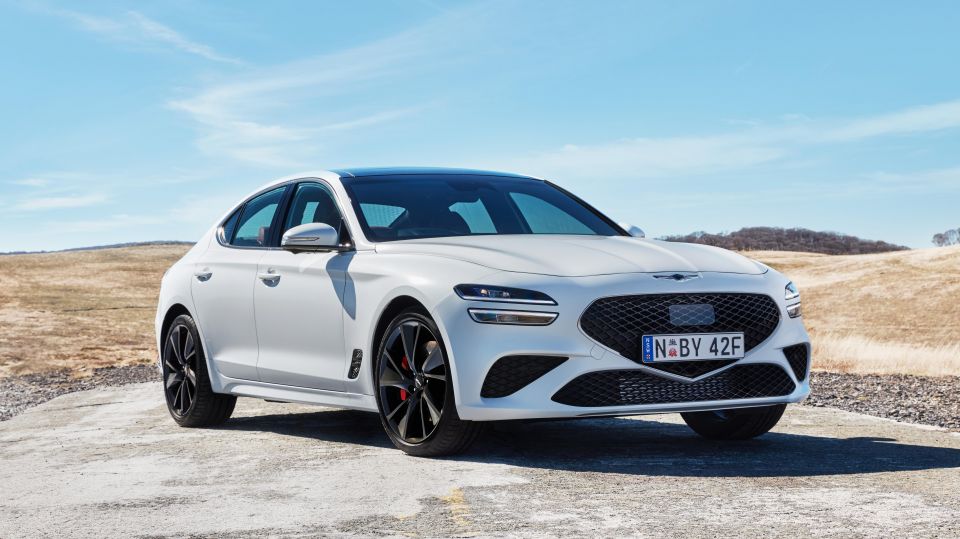
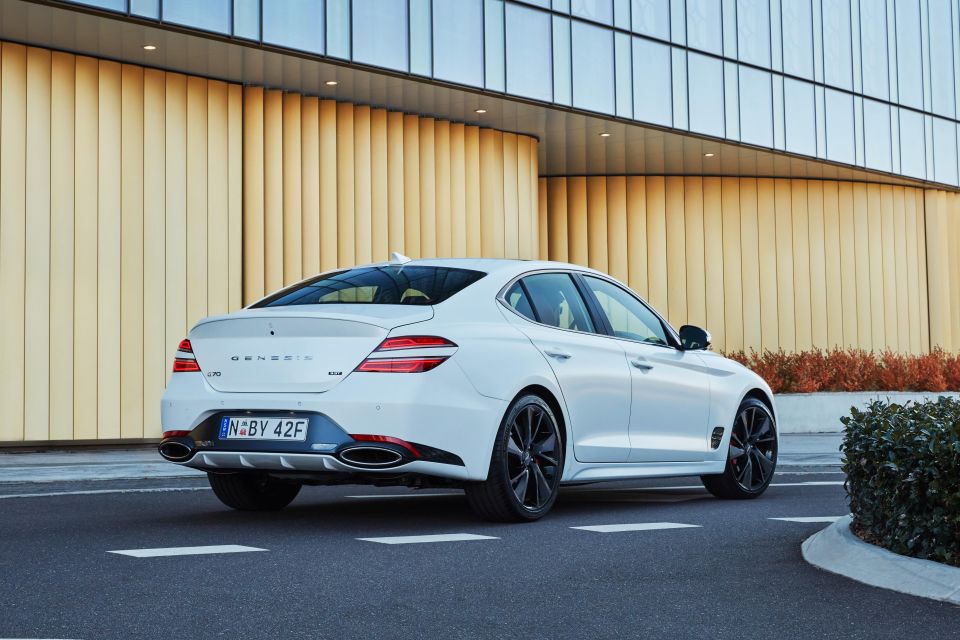

Publisher
New from
$59,300
excl. on-roads

Publisher
New from
$59,300
excl. on-roads


Publisher
New from
$59,300
excl. on-roads

Publisher
New from
$59,300
excl. on-roads
Quickly see how this car stacks up against its competition. Select any benchmark to see more details.
CarExpert does the hard work to get you the best price. No negotiating, no hidden costs, just expert help and real savings on your next new car.
The Genesis G70 remains a hidden gem in the very competitive and somewhat neglected mid-size luxury sedan market.
A once popular category for executives keen to be seen in the BMW 3 Series, Mercedes-Benz C-Class and Audi A4, the G70 brings a rather fresh approach to the market for those that dare to be different and stray from the Germans, but are still willing to pay for it.
This mid-life update to the Genesis G70 brings it in line with the rest of the model line up in terms of design, technology and equipment.

The most obvious changes to the exterior include are Korean brand’s new quad lamps design which gives it a very familiar look to that seen on the G80, GV80 and the upcoming and much anticipated GV70.
Nonetheless, the entire front and rear bumper and light assembly is now different to what it was before.
Mechanically, the sedan remains nearly identical to the pre-updated G70 bar some minor improvements.

Like the new G80, GV70 and GV80, there’s only one trim level per powertrain in the updated G70 range but the option of an expansive (and expensive) Luxury Package.
The range opens at $63,000 before on-road costs for the Genesis G70 2.0T, with an optional Sport Line package costing $4000.
Stepping up to the Genesis G70 3.3T Sport adds the sporty interior and exterior trim elements and raises the price to $76,000 before on-roads.
Both the 2.0T and 3.3T Sport are available with the $10,000 Luxury Package, while matte paint is a $2000 option.
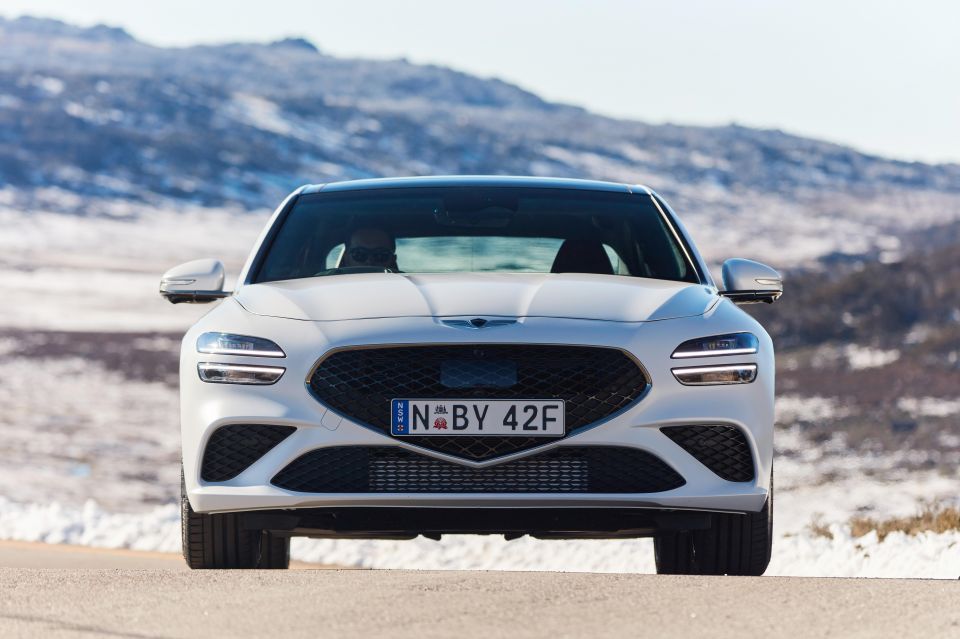
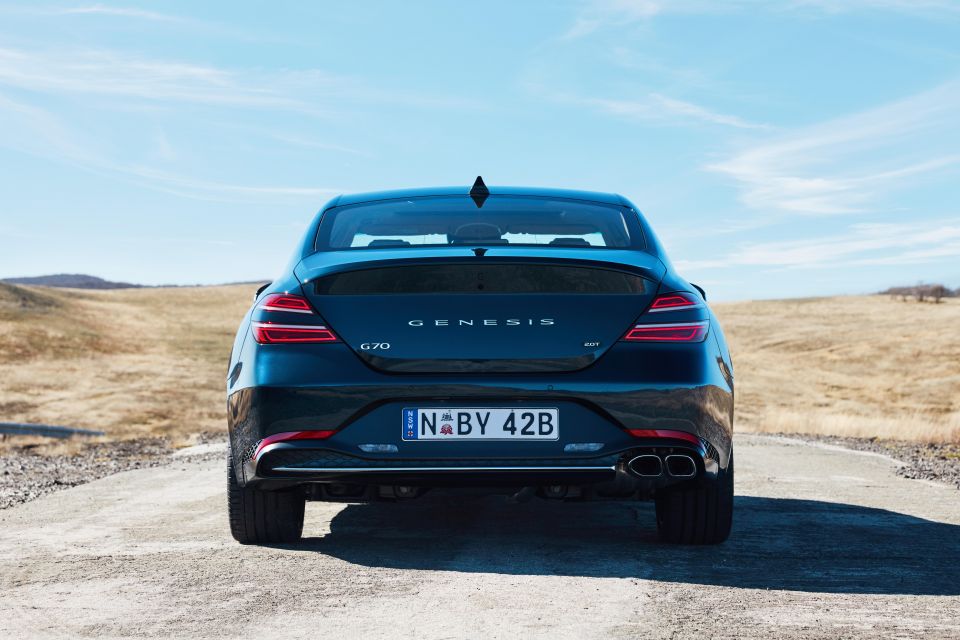
All G70 models come standard with the following equipment:
Items like the sunroof, surround-view camera and ventilated front seats were previously available with the four-cylinder engine only in Ultimate trim.
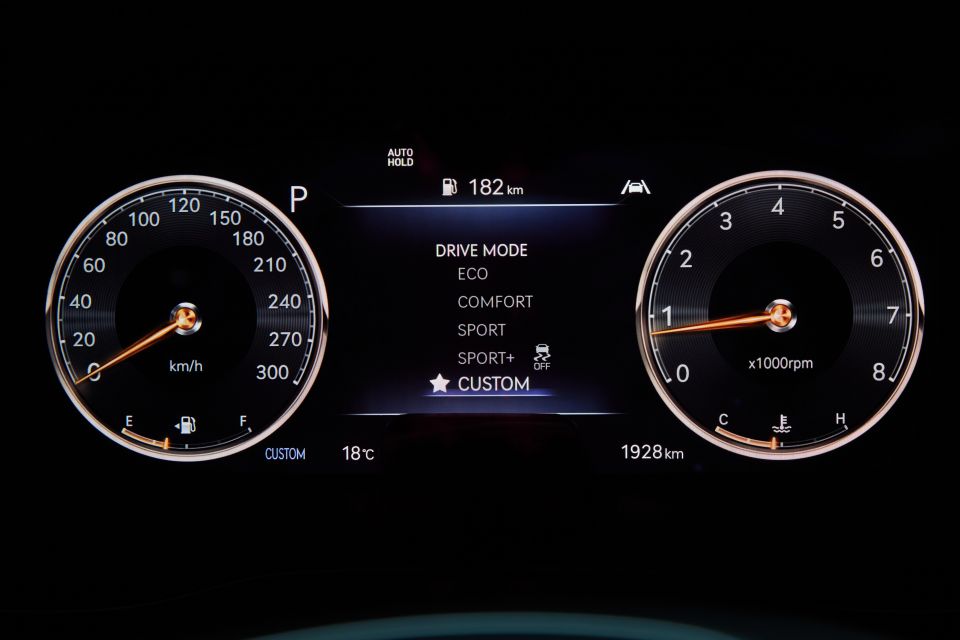
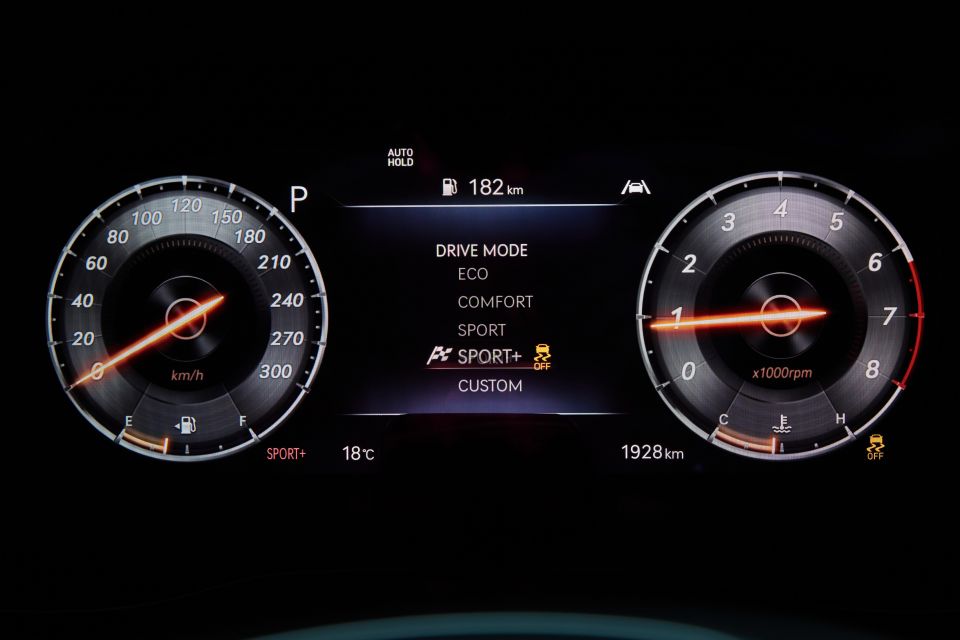
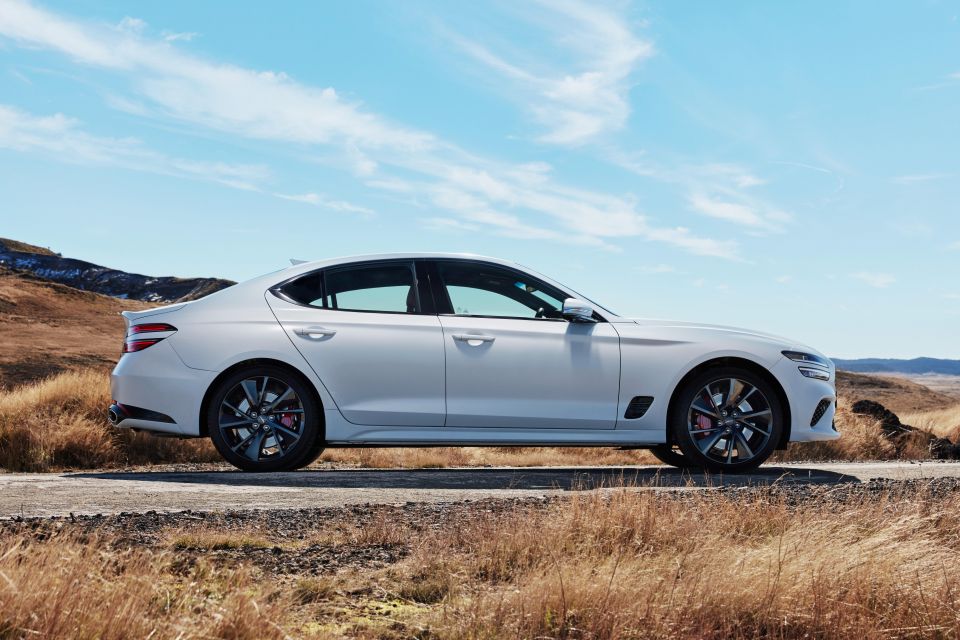
The optional $4000 Sport Line Package adds:
The 3.3T Sport also adds these features, plus an active variable exhaust and adaptive suspension.
The $10,000 Luxury Package, available on both the 2.0T and 3.3T Sport, adds:
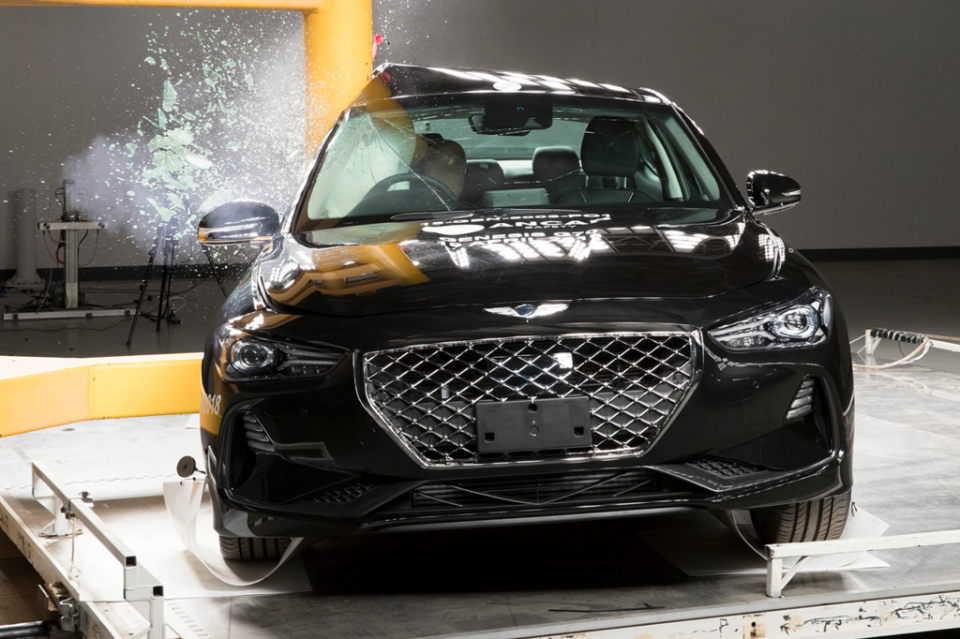
The Genesis G70 has a five-star rating from ANCAP, based on testing conducted in 2018.
It received an adult occupant protection score of 81 per cent, a child occupant protection score of 86 per cent, a vulnerable road user protection score of 69 per cent, and a safety assist score of 81 per cent.
Standard safety equipment across the range includes:

The Luxury Package’s fully-digital instrument cluster also includes active driver attention monitoring.
There is one interesting safety feature in the G70 worth mentioning, that being the front-centre airbag that acts as a barrier between the two front passengers, which is rather unique.
Other than that, the standard safety kit on the Genesis is very much the latest money can buy and there is not much – if anything – you are missing here compared to the German rivals.
In fact, a lot of options such as the display monitor that shows you what is to your left or right when you indicate, is (not new) but very much lacking in the G70’s main rivals.
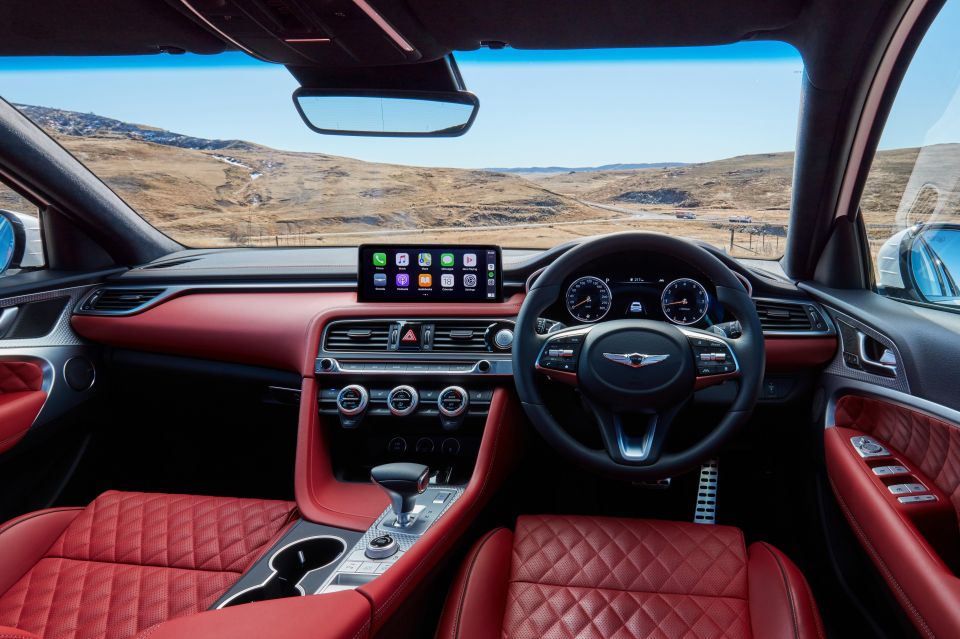
The interior is where the Genesis brand as a whole, for us anyway, seems to have an edge over the Germans and even Lexus. It’s kind of a blend of Lexus’ dedications to amazing craftsmanship with beautiful leather and fantastic use of colours throughout the cabin, but the Koreans seemingly have a much better grasp of modern technology than whoever is in charge of tech at Toyota/Lexus.
The dual screens are both super high resolution and quick to respond to inputs. The 10.25-inch centre screen is similar to what you’d expect from an iPad of a few years ago, which is still about a lifetime ahead of Lexus. The higher-spec models like the 3.3T with the Luxury and Sport packs we tested come with the 12.3-inch 3D digital instruments.
It’s hard to tell you if the 3D effect is a good thing or not, it feels a little gimmicky and different for the sake of it. Yes the new Mercedes-Benz S-Class has something similar as well, but why?
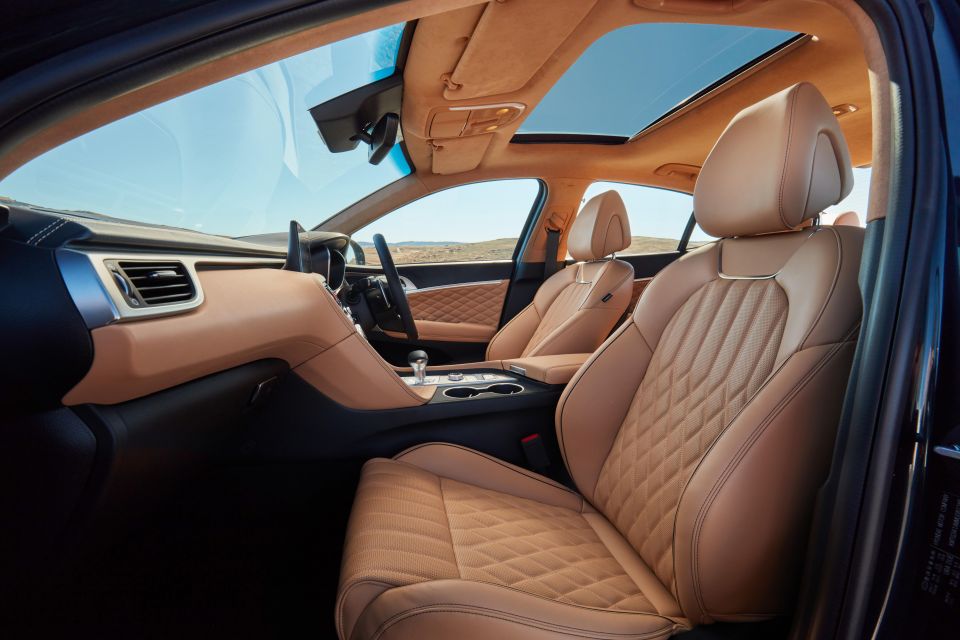
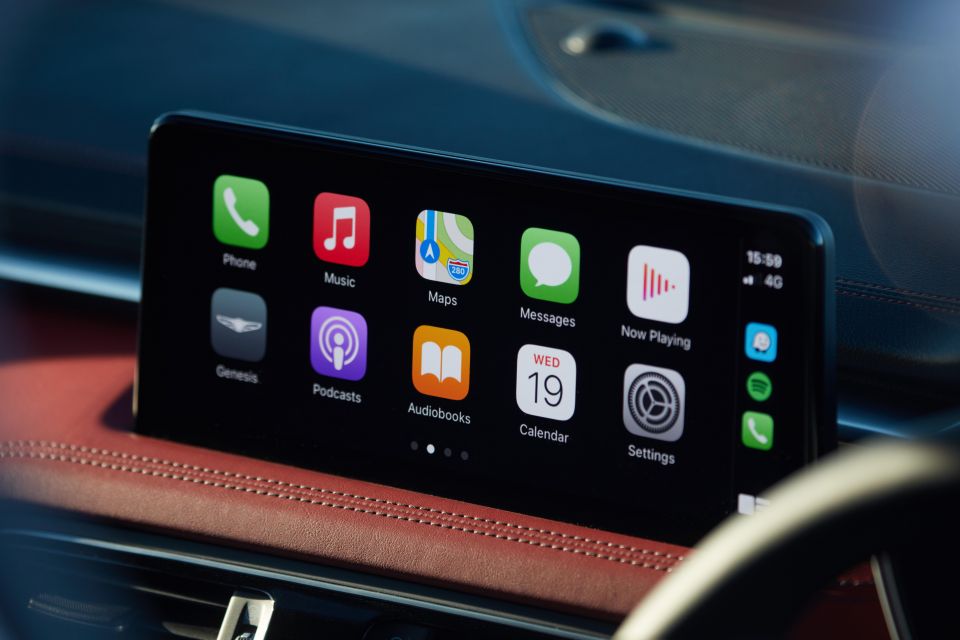
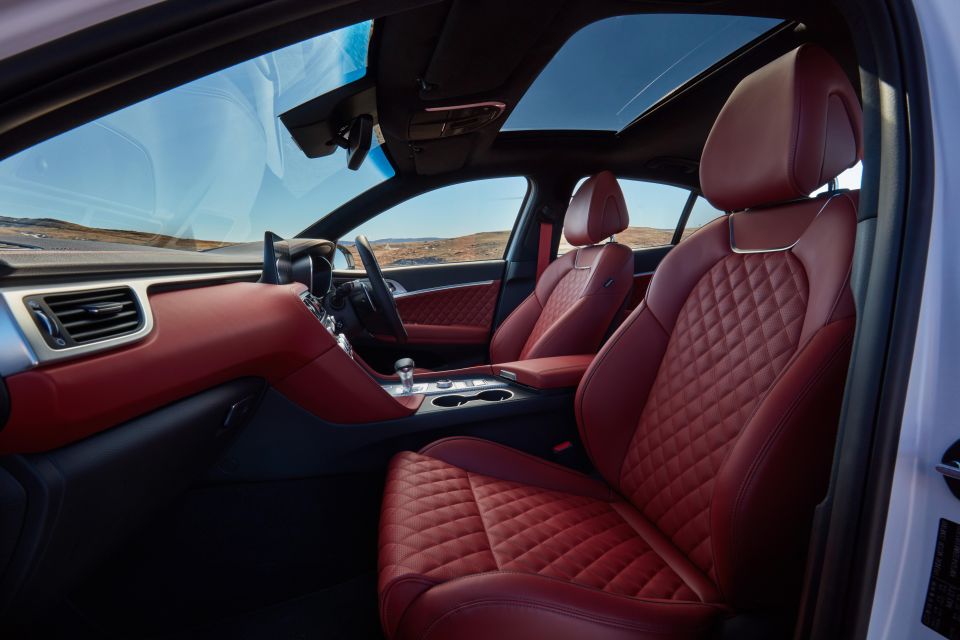
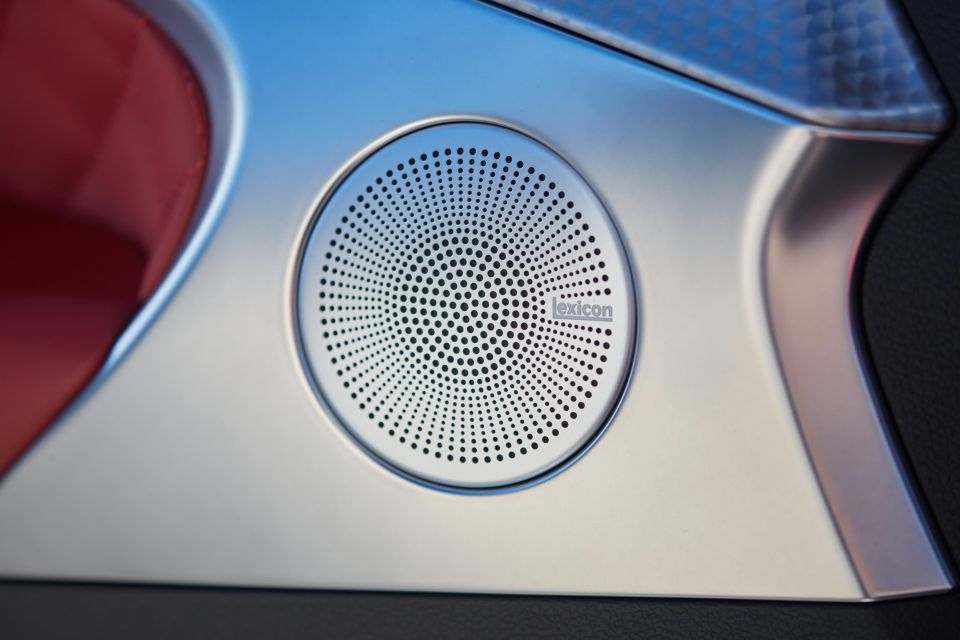
The two displays to the side are legible and decent, but the centre bit that you look at directly is lacking clarity for the sake of trying to look 3D. Give us clarity over gimmicky any day.
Other negatives are the lack of USB-C, which is very odd for a car being updated in 2021. Thankfully, Genesis has updated its Qi wireless charging system to 15W now, that will mean a much faster charging output for modern phones like the iPhone 12.
However, we can only assume when the car was converted from left- to right-hand drive, the engineers seem to have not bothered to move the Qi charging light to the other side, so at the moment it’s very difficult to tell if your phone is actually charging as the light that indicates Qi is turned on is near impossible to see from the drivers seat.
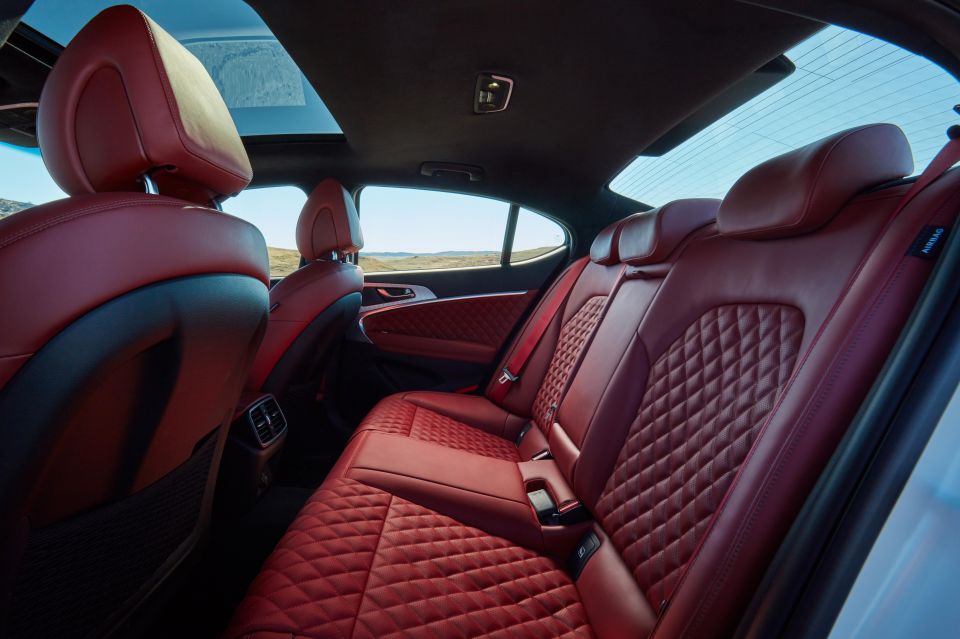
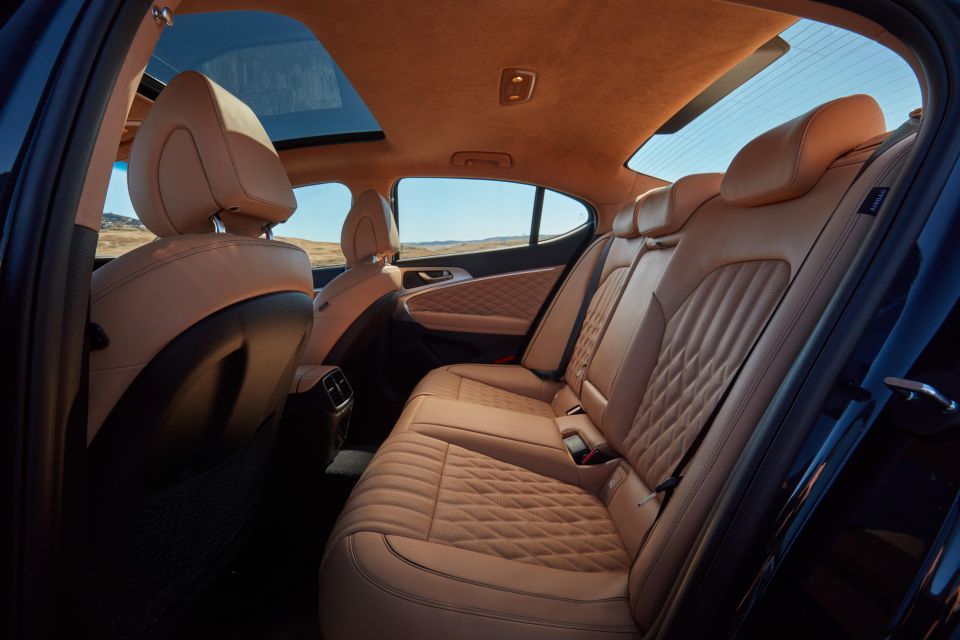
The lack of wireless Apple CarPlay also feels very much like a big no-no for a car that is trying to take on the established players. BMW has had this tech in its cars for so long and even Hyundai offers it in cars nearly a quarter of the cost – though not when inbuilt sat-nav is fitted.
Seems like a technical omission that someone higher up really needed to fight harder for. There is genuinely no point having wireless phone charging without wireless screen mirroring technology.
So yes, the interior is fantastic, but there are some basic own goals from Genesis that would be so easy to fix that we felt this was the chance to do it, but alas that has not been the case.
The Sevilla Red interior of our test car was absolutely superb. It’s closer to what you’d expect from a Range Rover Autobiography than from a 3 Series competitor. It’s perhaps not as soft as the ‘Windsor’ leather you’ll get from the British brand but compared to some of the cheap stuff you’ll find in lower-grade Audis and BMWs, this is definitely a league above.
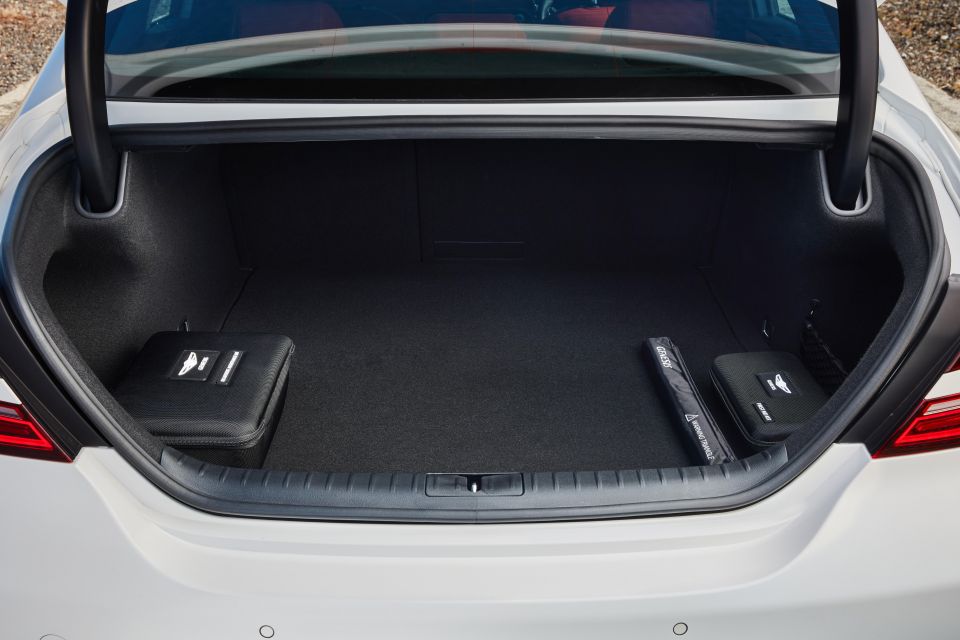
The front seats are comfortable and supportive. The second row is a tad cramped for tall passengers, so don’t expect much leg room back there if you measure north of 175cm.
We liked the heated steering wheel on a cold Sydney morning, but also at the same time felt like the steering wheel itself didn’t match the tactile sensation the rest of the amazing interior provided.
Not to say it’s no good, because it really is, but the rest of the interior is better.
The 330L boot space is, adequate, but certainly not huge or segment-leading.
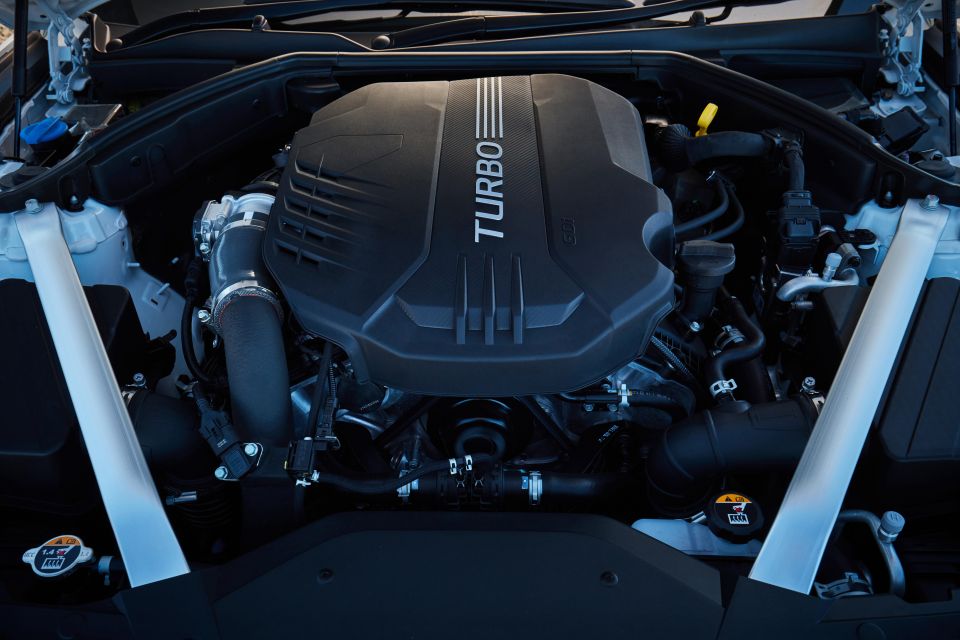
The 2021 G70 features two carryover powertrains.
The 2.0T uses a turbocharged 2.0-litre four-cylinder engine producing 179kW of power and 353Nm of torque.
The 3.3T Sport upgrades to a twin-turbocharged 3.3-litre V6 producing 274kW of power and 510Nm of torque, with a new variable exhaust netting an extra 2kW compared to last year’s model.
All G70 models in Australia are rear-wheel drive and use an eight-speed torque-converter automatic transmission.
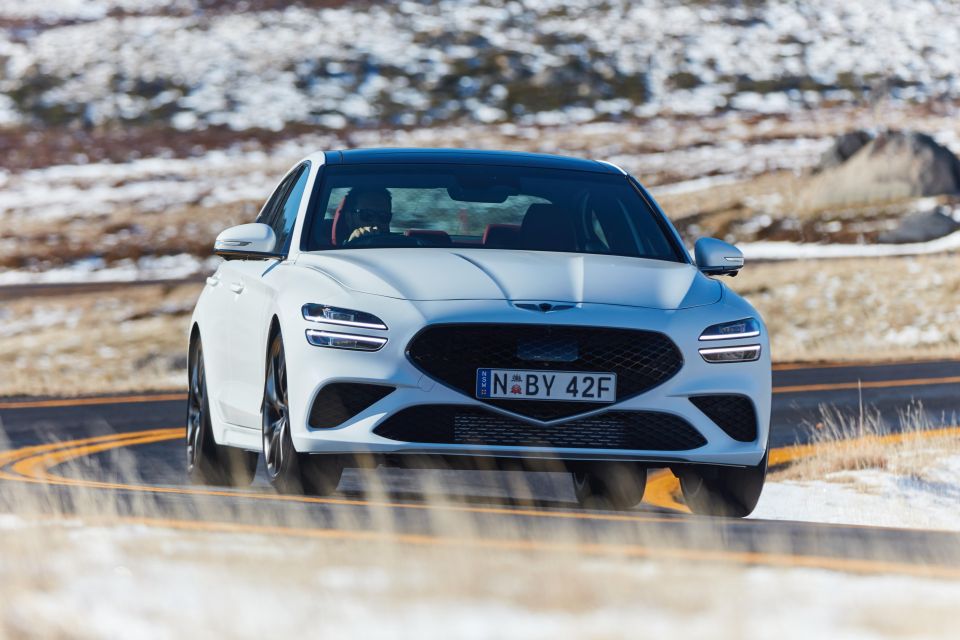
For the purpose of this test we only drove the 3.3L twin-turbo V6 model with all the bells and whistles. Genesis says most buyers will pick the bigger and more powerful engine and we can certainly see why.
With 274kW, the G70 in its best trim has a lot of go and will certainly be a good match for the likes of the AMG C43 and M340i.
It’s perhaps not as confidence-inspiring as either of those two cars due to the lack of all-wheel drive, but for an everyday sedan that is not going to be driven at the limit, most buyers will find it hard to tell the difference.
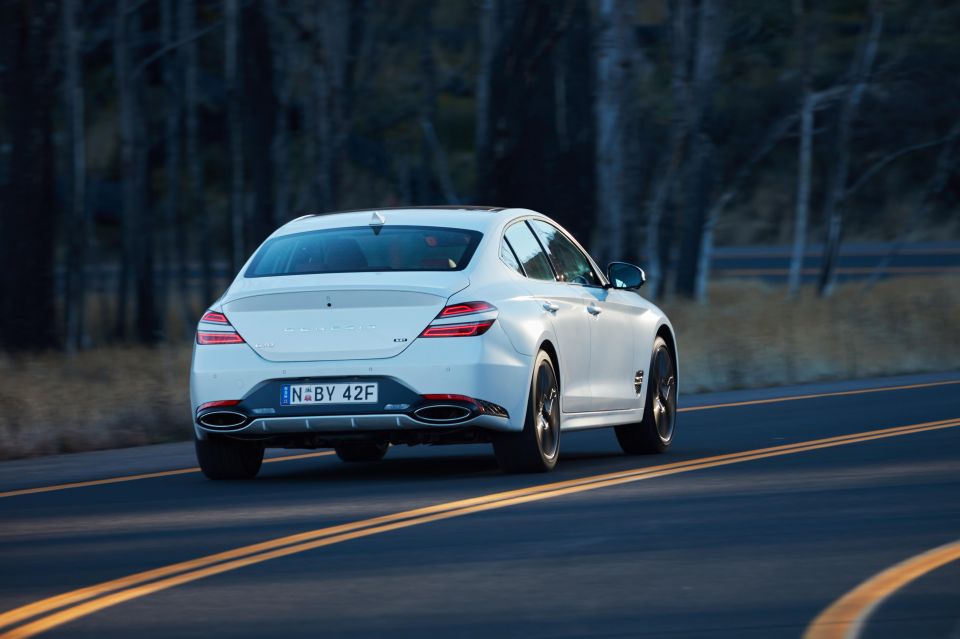
CarExpert does the hard work to get you the best price. No negotiating, no hidden costs, just expert help and real savings on your next new car.
We found the traction control was far too willing to interfere during spirited driving where it wasn’t required. Genesis seems to have countered that criticism by adding in a new Sport+ mode that actually turns traction control off. We would probably just prefer a system that only came to our aid when required rather then all the time or never.
The ride is super smooth even on the big 19-inch wheels and low-profile performance tyres, but its hard not to think that perhaps the rear wheels could be a little wider given the enormous power output the G70 seems unable to tame.
The 3.3-litre also doesn’t sound very good, to be fair. It’s just noise, but not much of it is stirring the soul. Nothing new here, it has become a crime to make cars sound good these days and thats not Genesis’ fault, but the ‘Greta army’ of activists.
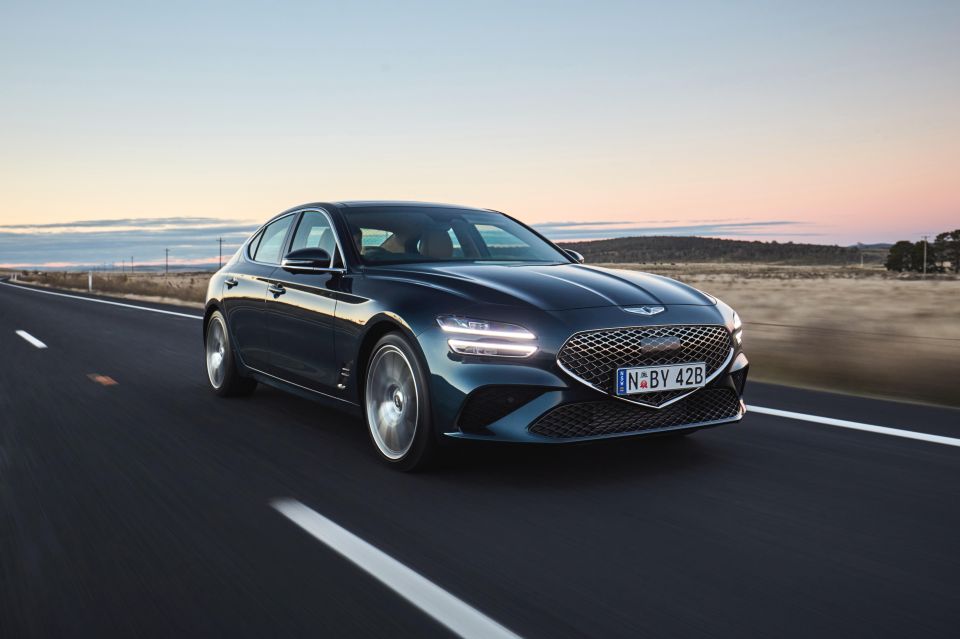
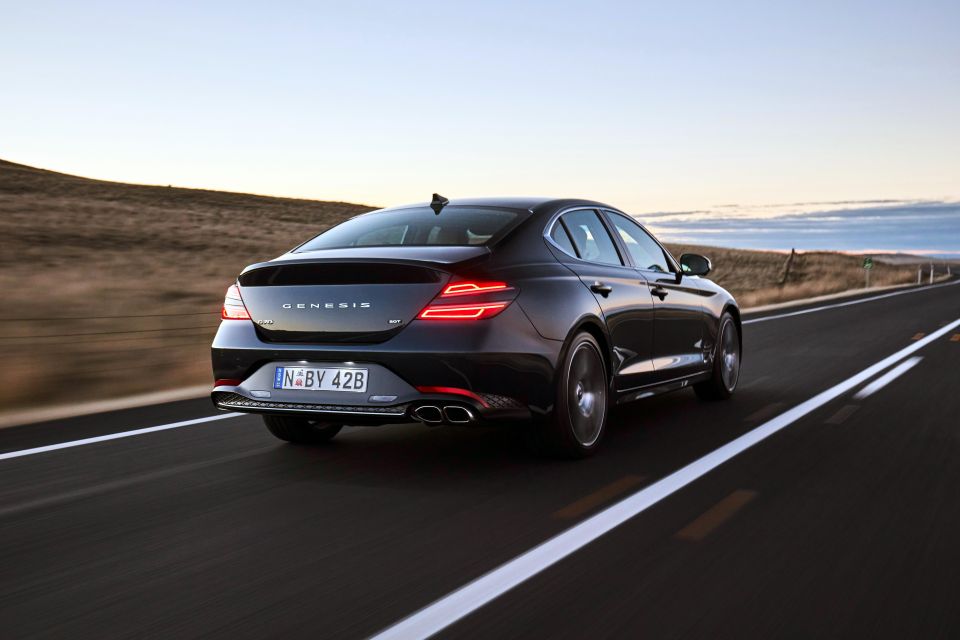
Power and torque come on hard and don’t really phase out through the rev-range. The eight-speed automatic is a little underwhelming when you get on to it, but does the job. It would certainly feel a bit more sporty if the shifts were a little more lively.
We found the steering super sharp and direct and the adaptive suspension presented a good difference between comfort and sport modes so that it can be driven daily with ease but also tuned for some fun when the time comes.
On a side note, we really enjoyed how the seat bolstering changes when you put the car into Sport mode, reminiscent of the old BMW M5, perhaps a nice homage from Hyundai’s performance boss and former BMW M boss, Albert Biermann.
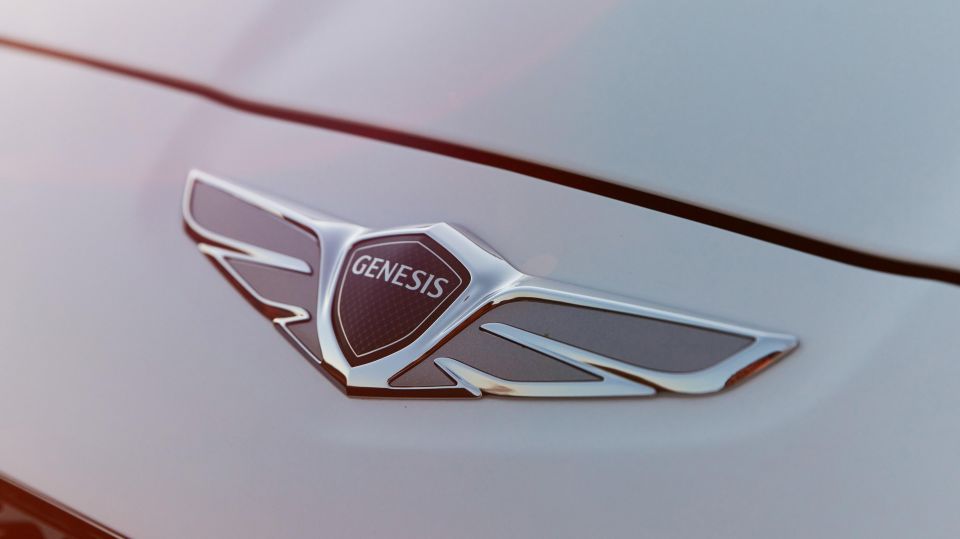
The 2021 G70 uses a claimed 9.0L/100km on the combined cycle in the 2.0T and 10.1L/100km in the 3.3T.
Both models use a 60L fuel tank and require 95RON premium unleaded fuel.
It’s covered by a five-year, unlimited-kilometre warranty and comes with five years or 50,000km of free scheduled servicing.
If you own a G70, you can also use the Genesis Concierge Service if you live within 70km of a Genesis Studio. This means an employee will come to your house and leave you with a Genesis loan car while your car is taken to be serviced.
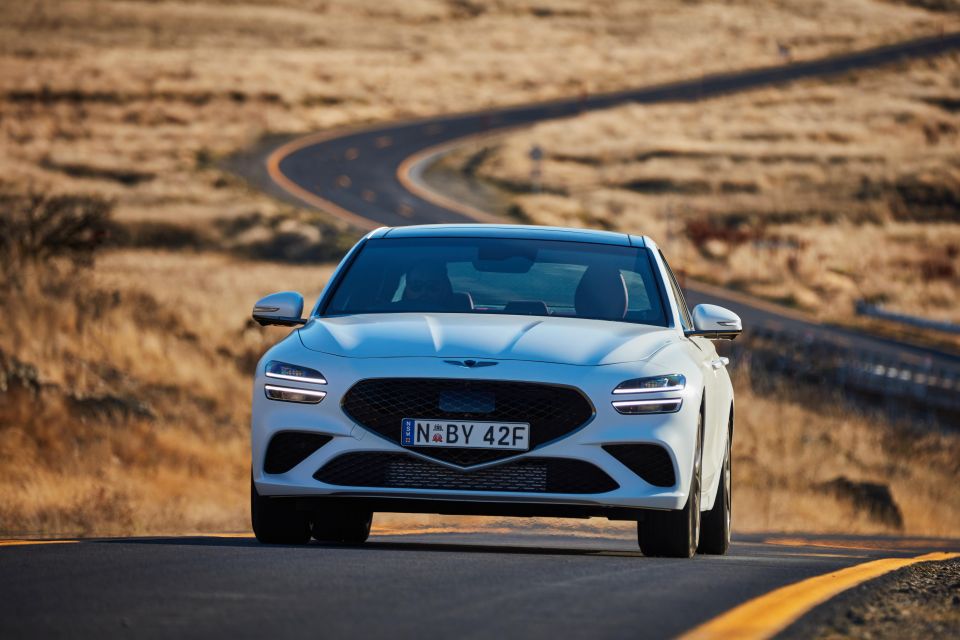
Overall, it’s hard to not take Genesis seriously when it has such excellent products.
Once the brand credibility and the dealer network catch up – and they will – Hyundai’s luxury brand will very much be on par with offerings from Europe and Japan.
For the early adopters that are willing to go for it, we say you won’t be disappointed but perhaps give the brand some more time to finalise its guaranteed buyback program for maximum assurance in resale.
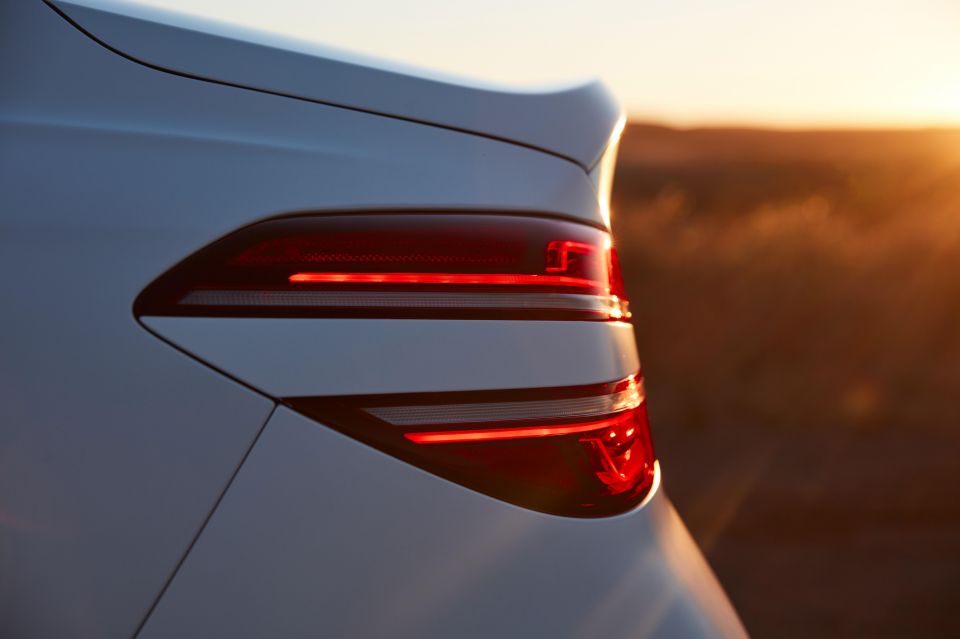
Click the images for the full gallery
CarExpert does the hard work to get you the best price. No negotiating, no hidden costs, just expert help and real savings on your next new car.
Discover and compare similar models
Alborz is the founder of CarAdvice (sold to Nine and now Drive) and co-founder of CarExpert. He is an honourary adjunct professor & entrepreneur in residence at the University of QLD. He loves naturally-aspirated V8s, V10s and V12s and is in denial about the impending death of the internal combustion engine. The best way to reach him is via Instagram.


Andrew Maclean
2 Months Ago
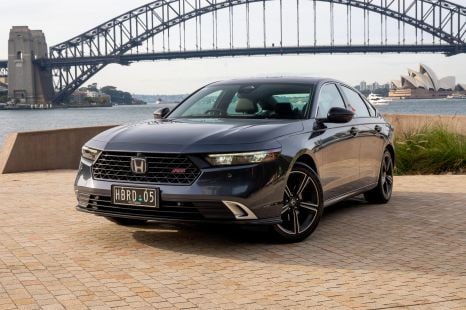

Andrew Maclean
1 Month Ago
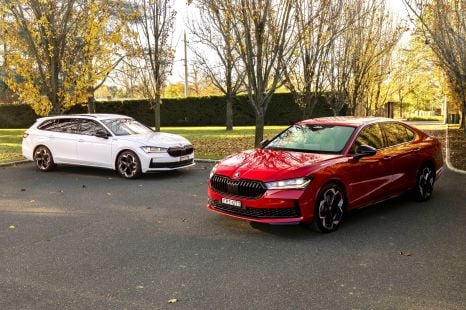

Max Davies
1 Month Ago
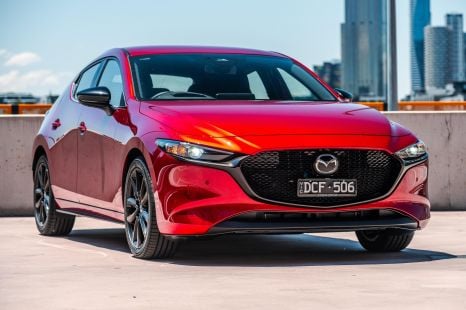

Josh Nevett
1 Month Ago
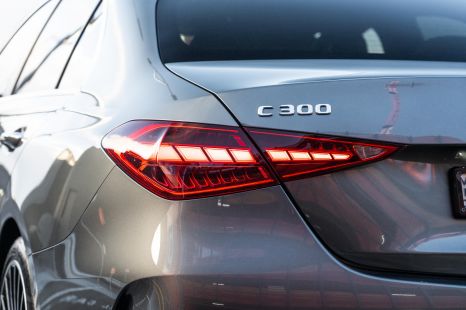

William Stopford
18 Days Ago
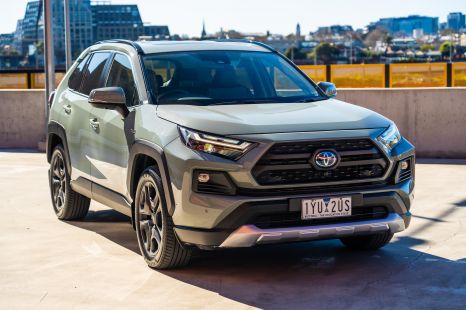

Marton Pettendy
16 Days Ago